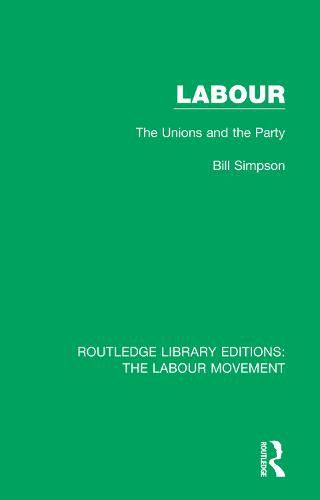Readings Newsletter
Become a Readings Member to make your shopping experience even easier.
Sign in or sign up for free!
You’re not far away from qualifying for FREE standard shipping within Australia
You’ve qualified for FREE standard shipping within Australia
The cart is loading…






First published in 1973. In this study, the author adopts a historical approach, tracing the evolution of socialist thinking during the past century and relating this to the growth of the union movement. The Taff Vale judgement, the Osborne judgement, the roles of the SDF, the Fabians, and the ILP - these episodes are re-examined from a novel perspective, and the historical material is frequently illuminated by the use of contemporary analogies.
The second half of the book presents an analytical study of differing union political theories and attitudes against the modern industrial background. Here the Marxist case is studied in depth and contrasted with the views of the Social Democrats. The author then considers the ownership and control of the economy, industrial relations, prices and incomes and inflation, making it clear where he feels the movement should stand on the key political issues of today. Finally, the book suggests the way in which the Labour Party and the trade unions should organise for power in the country.
$9.00 standard shipping within Australia
FREE standard shipping within Australia for orders over $100.00
Express & International shipping calculated at checkout
First published in 1973. In this study, the author adopts a historical approach, tracing the evolution of socialist thinking during the past century and relating this to the growth of the union movement. The Taff Vale judgement, the Osborne judgement, the roles of the SDF, the Fabians, and the ILP - these episodes are re-examined from a novel perspective, and the historical material is frequently illuminated by the use of contemporary analogies.
The second half of the book presents an analytical study of differing union political theories and attitudes against the modern industrial background. Here the Marxist case is studied in depth and contrasted with the views of the Social Democrats. The author then considers the ownership and control of the economy, industrial relations, prices and incomes and inflation, making it clear where he feels the movement should stand on the key political issues of today. Finally, the book suggests the way in which the Labour Party and the trade unions should organise for power in the country.